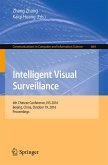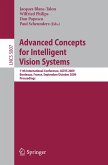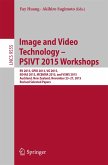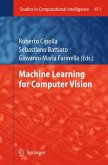This edited book presents recent findings in the field of intelligent multimedia surveillance emerging from disciplines such as multimedia computing, computer vision, and artificial intelligence. It consists of nine chapters addressing intelligent video surveillance, video analysis of crowds, privacy issues in intelligent multimedia surveillance, RFID technology for localization of objects, object tracking using visual saliency information, estimating multiresolution depth using active stereo vision, and performance evaluation for video surveillance systems.
The book will be of value to researchers and practitioners working on related problems in security, multimedia, and artificial intelligence.
Dieser Download kann aus rechtlichen Gründen nur mit Rechnungsadresse in A, B, BG, CY, CZ, D, DK, EW, E, FIN, F, GR, HR, H, IRL, I, LT, L, LR, M, NL, PL, P, R, S, SLO, SK ausgeliefert werden.
Hinweis: Dieser Artikel kann nur an eine deutsche Lieferadresse ausgeliefert werden.









